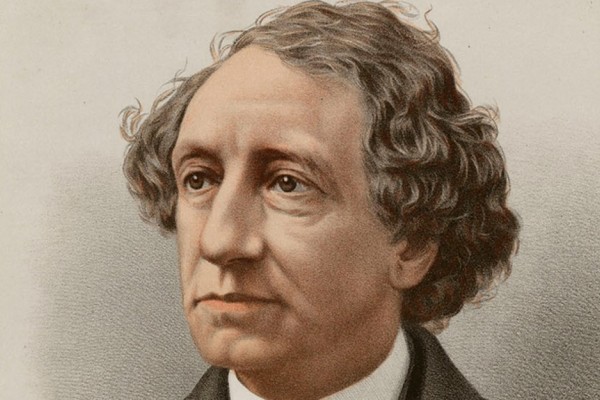Doug Ford’s racism is risking First Nation lives
The premier’s allegations against Sol Mamakwa need to be called out for what they are—racism

Doug Ford’s accusation that NDP MPP Sol Mamakwa “jumped the line” perpetuates the racist stereotype that First Nations get everything for free or get everything first. Image by Canadian Dimension.
Ontario Premier Doug Ford’s unfounded allegations against NDP MPP Sol Mamakwa need to be called out for what they are—racism.
Ford’s public attack on Mamakwa, Ontario’s only MPP who is a member of a First Nation, looks more like it was meant to deflect attention from his inability to respond to Mamakwa’s question, than having any basis in reality.
Ford’s hateful words should not be described as just an example of racially charged comments, not should they be placed in scare quotes. The premier’s words were not only offensive, but they could put the health, safety and wellbeing of First Nations at risk.
On Thursday, March 11, Mamakwa asked Ford what his plans were to address priority vaccinations for Indigenous peoples living off-reserve in urban areas. This is a valid question given the lack of information that has been provided by the provincial government and the many stories of Indigenous peoples falling through the cracks of the vaccination rollout.
Instead of sharing his plan or admitting he did not have one, Ford lashed out at Mamakwa and accused him of “jumping the line” for vaccinations by flying into a community to which he does belong and angering chiefs.
These allegations need to be assessed against the facts. First, Mamakwa was invited by the chiefs of Muskrat Dam and Sandy Lake First Nation to come to their communities to be vaccinated and promote vaccine uptake. The reason for this was to help counter vaccine hesitancy and increase the numbers for who would be inoculated.
This was all done publicly and shared widely on Mamakwa’s social media. In fact, the Ontario NDP issued a press release about his campaign to help increase vaccine uptake. Mamakwa received his first shot in Muskrat Dam on February 1 and his second shot in Sandy Bay First Nation on March 1. So, this is old news.
On March 1, 2021, I was invited by Sandy Lake First Nation to receive my 2nd dose of Moderna vaccine. I was there to promote vaccine uptake in fly-in First Nations.
— Sol Mamakwa MPP (@solmamakwa) March 7, 2021
Meegwetch to Dr. Suzanne Shoush for the shot. pic.twitter.com/M6K2JB8Y0H
Secondly, we have not heard from a single chief condemning Mamakwa for his vaccination campaign—nor has Mamakwa been contacted by any concerned First Nations chiefs. In fact, the opposite occurred: Chief Gordon Beardy of Muskrat Dam condemned Ford’s comments against Mamakwa, and said that the premier’s remarks were also an attack on him as chief.
The letter from Sandy Lake First Nation inviting Mamakwa to the community also counters Ford’s allegations. Those are the only relevant chiefs in this scenario. Ontario Regional Chief Roseanne Archibald also publicly expressed her concerns about Ford’s comments. Did Ford just make this all up?
Finally, to add fuel to the racist fire that was already burning after Ford’s embarrassing display, Health Minister Christine Elliott not only defended Ford’s remarks, but then said that “Everyone needs to wait their turn.”
The (wrongful) assumption here is that Mamakwa jumped the line, an unfounded allegation that was originally promulgated by Ford. The fact that Elliott then said she was not sure if Makmakwa was in a line up or not does not undo her insinuation that he skipped the queue.
In other words, her statement not only served to reinforce the original racist remarks by Ford, but it also runs counter to her ethical role as health minister. Elliott knows, or should have known, that vaccine hesitancy is a real problem and that public campaigns to promote vaccine uptake can save lives. Once again, she chose politics over public health and wellbeing.
It is critical that we unpack the racism involved in this incident and how this form of prejudice can manifest as harm to First Nations. Racism and prejudice occurs when one holds a negative attitude, belief or way of thinking about a socially defined group like First Nations.
Racist or prejudicial beliefs can lead to behaviours that abuse, neglect, oppress or otherwise mistreat certain groups. These views are held by individuals but also perpetuated systemically through government laws, policies, practices, governing systems and economies. They are also embedded in societal attitudes.
As for the premier, he has a long history of racist and prejudicial remarks against First Nations, including when he referred to Mohawk land defenders as “bad apples” and rogues. Ford has even been quoted as denying systemic racist exists.
Ford’s accusation that Mamakwa jumped the line perpetuates the racist stereotype that First Nations get everything for free or get everything first. This is similar to the same racist comments made by Manitoba Premier Brian Pallister when he challenged priority vaccinations for First Nations as “unfair” to Manitobans.
Pallister’s comments simultaneously suggested that First Nations are not Manitobans and that their specific vulnerabilities to the pandemic ought not to be triaged and treated urgently as advised by healthcare professionals.
When thinking about fairness, the most relevant issue at hand is the fact that the crisis-level socio-economic conditions experienced by First Nations make them more vulnerable to the ravages of the pandemic—and that these issues are the direct result of generations of genocide, racism, violence and neglect.
Ford’s deplorable comments aimed at Mamakwa are false and serve only to undo the vaccination campaign underway. Ford’s attack also serves to erase First Nation jurisdiction and agency amid the COVID crisis. If those First Nations wanted Mamakwa to help them encourage vaccine uptake in their communities, that is their legal right to do so.
Sadly, however, Ford’s antics worked. He avoided having to answer for all the off-reserve Indigenous peoples falling through the cracks.
The premier needs to stop trying to politicize this pandemic. It is long past time that he confronted his obviously racist beliefs and how they impact his attitudes and behaviours towards First Nations in Ontario.
Only a premier who holds such beliefs could possibly assert that First Nations in Ontario have never been treated better, despite the high rates of murdered and missing Indigenous women, skyrocketing incarceration rates, and the ongoing humanitarian crisis faced by First Nations children in foster care.
The time to confront individual and systemic racism is long overdue. Ford needs to do more than apologize to Mamakwa late on a Friday afternoon. He needs to apologize to all Indigenous peoples for what Mamakwa calls “shaming First Nations people for getting medical care.” Then he needs to kick priority vaccinations for off-reserve Indigenous peoples into high gear.
Pam Palmater is a Mi’kmaw citizen and member of the Eel River Bar First Nation in northern New Brunswick. She is a longtime CD columnist, and has been a practicing lawyer for 20 years. Currently, Pam is a Professor and the Chair in Indigenous Governance at Ryerson University.










